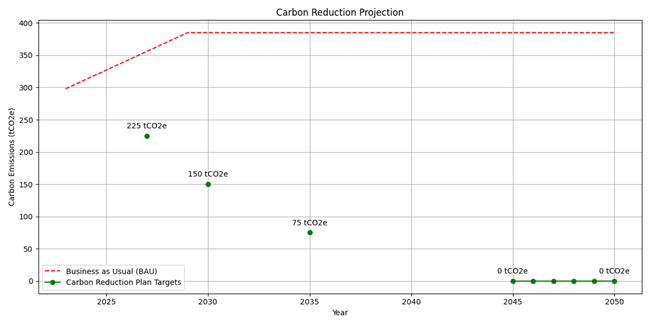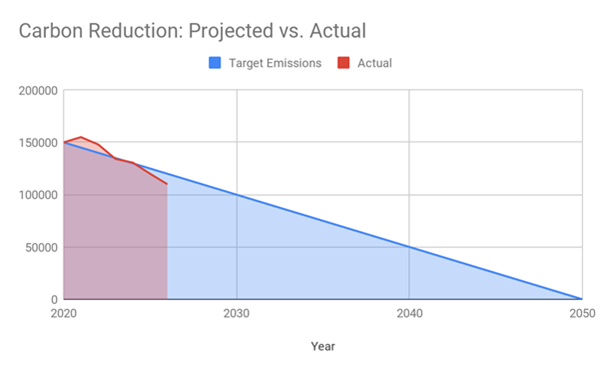

DBaaS Ltd (Digital Business as a Service) is a UK-based technology company specializing in digital transformation and cloud-native solutions. Our core business activities include:
1. IT Consulting & Managed Services
We provide strategic IT consulting, infrastructure management and cybersecurity solutions to help organizations optimize their digital operations and ensure compliance with standards such as GDPR and ISO 27001.
2. Web & Mobile Development
We design and develop high-performance websites and mobile applications, including custom WordPress solutions. Our focus is on user experience, accessibility, and scalability to meet evolving digital needs.
3. Cloud & SaaS Solutions
We build and deploy scalable Software-as-a-Service (SaaS) platforms using leading cloud providers such as AWS, Azure and Google Cloud. Our solutions include CRM, ERP, HRM, accounting and e-commerce systems, all built with multi-tenant architecture and API-first design.
4. Digital Marketing & Creative Services
We offer SEO, branding and digital marketing strategies to enhance online visibility and engagement. Our creative team ensures that design and messaging align with business goals and audience expectations..
5. Advanced Analytics & AI Integration
We empower organizations with data-driven insights through advanced analytics and AI-ready APIs. Our solutions support strategic decision-making and operational efficiency.
Furthermore, through our Carbon Reduction Plan we are targeting to achieve net zero emissions by 2045, five years ahead of the national target. Scope 1 emissions, arising from our electricity consumption in offices and data centers, currently account for 65% of our total in-scope emissions. Progress toward our long-term targets will therefore depend largely on transitioning to renewable energy sources and optimizing our technology infrastructure.
Further reductions across all three emission scopes will be supported by wider national decarbonization measures, regulatory changes and evolving industry practices. They will also require us to strengthen engagement with suppliers, cloud service providers and staff while developing supply chain and operational policies that embed sustainability.
Since establishing our baseline year of 2022-23, we have already advanced a range of carbon reduction initiatives. We remain confident that continued business growth can be achieved without proportional increases in emissions through strategic investment in clean technologies and sustainable operational practices.
Baseline emissions are a record of the greenhouse gases that have been produced in the past and were produced prior to the introduction of any strategies to reduce emissions. Baseline emissions are the reference point against which emissions reduction can be measured.
We have conducted a comprehensive audit of all included scope emissions from this baseline year to establish a complete picture of our business-as-usual operations. Our calculations are based on the Operational Control approach, covering all UK operations under DBaaS LTD's direct management. This represents our first formal carbon assessment, establishing the foundation for future emissions tracking and reduction initiatives. Data collection included energy bills, travel records, commuting surveys and waste management reports
| Baseline year emissions: 1st April 2022 - 31st March 2023 | |
|---|---|
| Emissions | Total (tCO2e) |
| Scope 1 | 8.45 |
| Scope 2 | 156.78 |
| Scope 3 (included sources) | 84.32 |
| Total emissions | 249.55 |
| Reporting Year: 1st April 2024 - 31st March 2025 | |
|---|---|
| Emissions | Total (tCO2e) |
| Scope 1 | 12.34 |
| Scope 2 | 187.92 |
| Scope 3 (included sources) | 98.76 |
| Total emissions | 299.02 (tCO2e) |
Note: The increase in emissions reflects business growth, with a 40% increase in staff headcount and expanded data center capacity to serve our growing client base.
In order to continue our progress toward achieving net zero, we have adopted the following carbon reduction targets:
Our Business as Usual (BAU) projections indicate that, without intervention, carbon emissions would rise to 385 tCO2e by FY 2029-30, representing a 29% increase compared to the current reporting year, primarily due to anticipated business growth and increased data processing requirements.
Our strategy is structured around a comprehensive three-phase Carbon Reduction Plan, culminating in the achievement of net zero emissions by 2045 at the latest. We aim to minimize emissions as far as possible by 2045, after which we will offset any residual emissions to ensure our carbon footprint is zero from 2045 through to 2050.


Taking our planned reduction measures into account, we forecast that emissions will fall to 195 tCO2e by FY 2029-30. This represents a 35% reduction against the current reporting year and a 49% reduction against the BAU trajectory.

The following environmental management measures and projects have been completed or implemented since the 2022-23 baseline. Since 2020-21, we have been actively generating reports and working to reduce our carbon footprint. Our new travel policy now requires line manager approval for all travel costs over £75, helping to minimize the environmental impact of our company's remote operations. We've also replaced older, inefficient laptops with new models, a step projected to generate significant energy savings in the coming years. By conducting these assessments annually, we can continually identify and address key emissions hotspots.
The carbon emission reduction achieved by these schemes equates to 15.3 tCO2e annually, representing a 6.1% reduction against potential emissions. These measures will remain in effect when performing contracts:
In the future, we plan to implement further measures such as:
We also expect that forthcoming UK developments will support further reductions:
This Carbon Reduction Plan has been completed in accordance with PPN 006 and associated guidance and reporting standard for Carbon Reduction Plans.
Emissions have been reported and recorded in accordance with the published reporting standard for Carbon Reduction Plans and the GHG Reporting Protocol corporate standard and uses the appropriate Government emission conversion factors for greenhouse gas company reporting.
Scope 1 and Scope 2 emissions have been reported in accordance with SECR requirements, and the required subset of Scope 3 emissions have been reported in accordance with the published reporting standard for Carbon Reduction Plans and the Corporate Value Chain (Scope 3) Standard.
This Carbon Reduction Plan has been reviewed and signed off by the board of directors (or equivalent management body).
Signed By
Name: Arumugam K
Position: Chief Executive Officer
Date: 15th September 2025
Q: How does DBaaS LTD's emissions compare to industry benchmarks?
A: Our current emissions intensity of 299 tCO2e (~2.4 per employee) is below the sector average of 3.1.
Q: What happens if business growth exceeds projections?
A: Targets ensure absolute reductions even with growth; initiatives will be accelerated if needed.
Q: How do you ensure data center partners meet commitments?
A: Annual audits, renewable energy requirements, and approved supplier list.
Q: What support is provided for employee home energy efficiency?
A: Annual assessments, efficient equipment, and internal sustainability fund.
Q: How do you verify emissions reductions?
A: Third-party verified methodologies and annual independent audits aligned with GHG Protocol.
© DBaaS LTD 2025 - This document is published in compliance with PPN 006 requirements and will be updated annually. Next scheduled update: September 2026